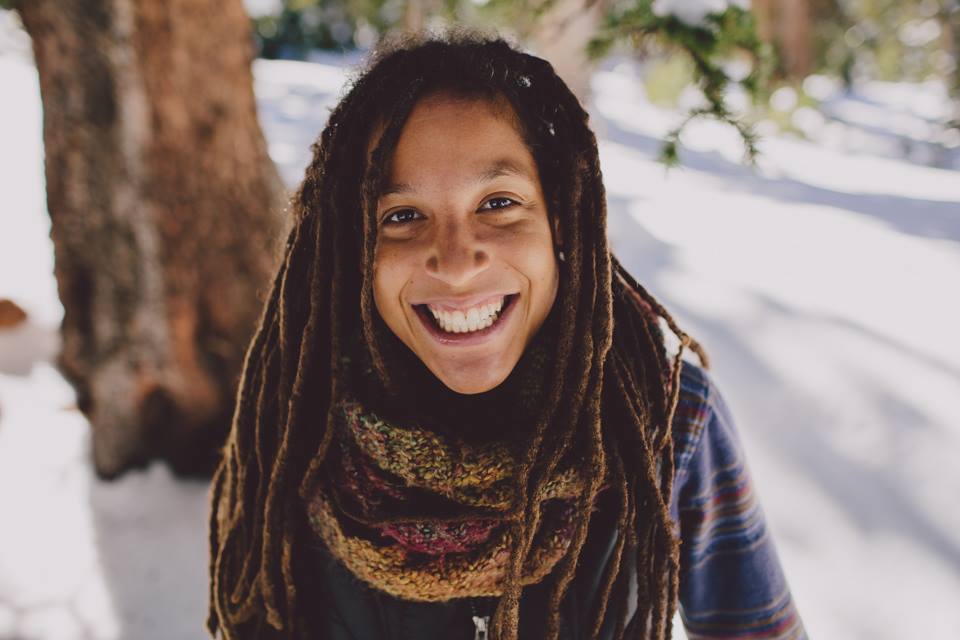Amber Yoder is a master's level counselor who works with teens dealing with sexual behavioral issues. She never intended to work with juvenile sexual offenders, but through a job transition she was encouraged by a professional mentor to take a position at Insight Counseling—and has loved the position. Amber is also a frequent speaker to middle school and high school students, explaining the importance of understanding consent and sex as related to Florida statutes.
 How would you describe your work? What do you do every day?
How would you describe your work? What do you do every day?
I counsel juveniles who have been involved in sexual battery cases or who have been reported for other sex-related allegations. I help them take responsibility for their actions and learn ways to prevent perpetrating again. On a daily basis, I counsel around seven to ten teenage boys, working with each for one to two years, depending on their issues. My goal is to get my patients to understand what is, and is not, true and acceptable regarding sex.
As an image-bearer of God, how does your work reflect some aspect of God’s work?
If the kids in our program are willing to accept responsibility for their actions, then we are willing to give them unconditional acceptance. As a Christian, my ultimate purpose is to show my patients that, if they admit that they have done wrong (what I would call “sin”) and ask forgiveness, then I will see them as God sees them, not as their past wrongdoings. I want them to know that there is nothing they can do to separate themselves from my care and compassion for them.
How does your work give you a unique vantage point into the brokenness of the world?
Sex crimes done against children are considered to be some of the worst crimes. People are generally more willing to work with victims, who might not have anyone representing or loving them, than they are with the perpetrators, who are just as broken but in different ways. As Christians, we know that God’s love can permeate anyone’s heart, but as a society we classify sins, calling some worse than others. God, however, is clear that all are in need of his love, grace, and compassion.
So my favorite thing about my job is that I get to be a Christian who works with people deemed disgusting by society, but who Christ says need forgiveness, grace, love, and truth—who need the gospel.
Jesus commands us to “love our neighbors as ourselves.” How does your work function as an opportunity to love and serve others?
Our society is sexualized, especially with the availability of porn that mobile devices allow. Every child is subjected to this, especially the men and boys in our world. Loving my neighbor as myself means thinking “This could be my son” about each patient. I see in my work that these issues are present across all demographics. They don’t discriminate based on race, religion, or socioeconomic status. The demographics are diverse because the internet has officially reached everybody—so this could be my child, brother, or cousin.
Involved in Women’s Ministry? Add This to Your Discipleship Tool Kit.
 We need one another. Yet we don’t always know how to develop deep relationships to help us grow in the Christian life. Younger believers benefit from the guidance and wisdom of more mature saints as their faith deepens. But too often, potential mentors lack clarity and training on how to engage in discipling those they can influence.
We need one another. Yet we don’t always know how to develop deep relationships to help us grow in the Christian life. Younger believers benefit from the guidance and wisdom of more mature saints as their faith deepens. But too often, potential mentors lack clarity and training on how to engage in discipling those they can influence.
Whether you’re longing to find a spiritual mentor or hoping to serve as a guide for someone else, we have a FREE resource to encourage and equip you. In Growing Together: Taking Mentoring Beyond Small Talk and Prayer Requests, Melissa Kruger, TGC’s vice president of discipleship programming, offers encouraging lessons to guide conversations that promote spiritual growth in both the mentee and mentor.






























